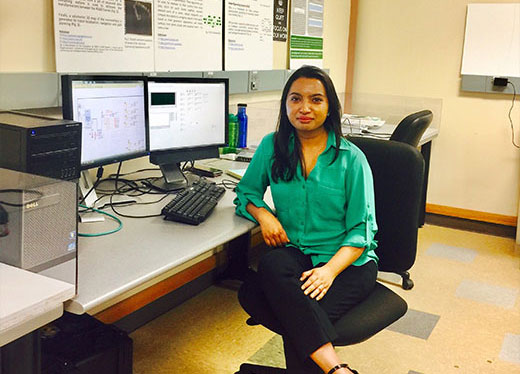
Researchers at the College of Engineering and the College of Business recently received the Dr. Hermann Zemlicka Award for Most Visionary Paper during the 2017 Gmunden Retreat on NeuroIS, the premiere academic conference in NeuroIS, an emerging field that integrates neuroscience with information technology and human-computer interactions. The researchers received the prestigious award for their research focused on stress and IS-related decision-making.
The team of UNT researchers includes graduate students Nabila Salma, Rasel Mamun, Yassir Hashem, Natalie Parde and Professors Bin Mai, Hassan Takabi, Rodney Nielsen, and Kamesh Namuduri.
Their project used electrical brain activity measured via electroencephalography (EEG) to determine, among other things, stress levels based on various cognitive IS decision-making tasks that included data entry and programming during both normal and malicious activities, and under various time constraints.
The project involved analyzing brainwaves recorded via a Geodesic Sensor Net, which made it possible for the researchers to categorize and quantify the results.
“With this new tool we built using Labview, we can gain further insights into human decision making behavior,” said Nabila Salma, the UNT Department of Electrical Engineering graduate student who led the project.
